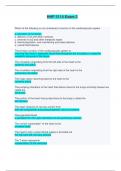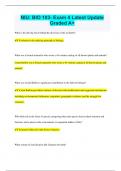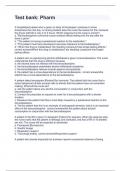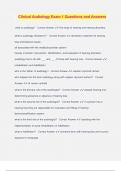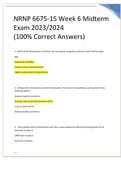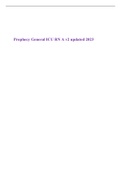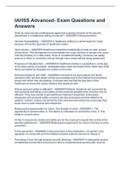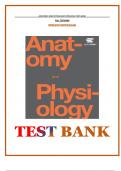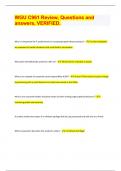Prüfung
HHP 3114 Exam 3 | Questions with Verified Answers
- Kurs
- Hochschule
HHP 3114 Exam 3 | Questions with Verified Answers Which of the following is not considered a function of the cardiovascular system a. secretion of hormones b. delivery of o2 and other nutrients c. removal of co2 and other metabolic waste d. thermoregulation, and maintaining acid-base balance e. o...
[ Mehr anzeigen ]
